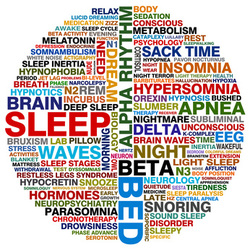 While surfing online, I found this article by Maria Fitzpatrick in The Telegraph, from March 2008. No point in me banging on about how great Reflexology is - I'm biased! I've cut the article a bit, to focus on how reflexology can sometimes help with sleep problems (if you want to view the whole article, the link is at the bottom). "As a last resort, insomniac Maria Fitzpatrick tried reflexology - with surprising results 'Have you had problems with your spine, madam?" There it is, I think to myself: the question that confirms that I was right to doubt reflexology. I would have been impressed, even hopeful, if the therapist, who knows next to nothing about me (except that I'm seeking a solution for chronic insomnia), had put his finger on my history of kidney problems while kneading my feet, or even found something disrupting the "energy pathway" to my tired brain. My back - where I'm told there is a "blockage" - is possibly the only part of my body that has never caused me any trouble. It's easy, at this moment, to see why many traditionalists believe reflexology practitioners to be nothing more than pseudo-science-peddling, fortune-teller masseurs laughing all the way to the bank. And yet, the art of reflexology, which holds that every part of the body is "mapped" to a corresponding region of the feet, is positively booming in Britain. There are currently an estimated 35,000 reflexologists at work here, pummelling and prodding the nation's soles - and, less commonly, hands - to provide relief for ailments such as sinusitis, asthma, allergies, migraine, angina and digestive complaints. ... GPs, depending on their Primary Care Trust, can now prescribe reflexology on the NHS, along with other unproved complementary therapies. They do so because, for many people, reflexology provides relief for stress or pain. As Doreen Baker says: "We have more than 8,000 registered members. I don't believe they would all still be in business if people weren't getting anything out of it." Reflexology is essentially a form of massage. Studies have shown that massage can result in many physiological changes in the body, among them lowering blood pressure and levels of the stress hormone cortisol, improving mood and immune function, and altering how we experience pain. While it does not claim to cure, diagnose or prescribe, reflexology, through its links to massage, is building up a stellar reputation in many hospitals, including Charing Cross and Hammersmith, and in Macmillan Cancer Relief hospices, where it is used to provide relief for cancer sufferers. A controlled trial at the Institute of Rehabilitation in Hull, yet to be published, has shown that it helps cancer patients to relax and cope psychologically with the after-effects of chemotherapy and radiotherapy. As for insomnia - there is an end to my story. The therapist asks me if I have problems with my spine. "No, never," I reply. However, there is a hot, searing pain when he massages my instep, under the ball of my foot. This spot, he tells me, corresponds to the spine. It hurts considerably more on the left foot, and I volunteer this information. Here, the pain lingers even after the massage is over. He asks if I'd like him to look at my back. In a series of swift movements, he presses firmly on three points to the left of my spine, between my shoulder blades. And I yell. A knot of muscle, lodged next to my spine, has made its presence felt. When I stand up from the table, light-headed, I nearly fall over. The next day, the area is red and a little bruised. But my whole posture feels different, realigned somehow. Two weeks later, I am sleeping for seven hours a night; my previous average was about three. Placebo effect it may be, but my head feels clear and my mental block about reflexology has disappeared." Here's the link to the original article: http://www.telegraph.co.uk/health/alternativemedicine/3353945/Reflexology-Suddenly-I-can-sleep.html To book an appointment call Doris on 07724 197627.
0 Comments
Leave a Reply. |
|
